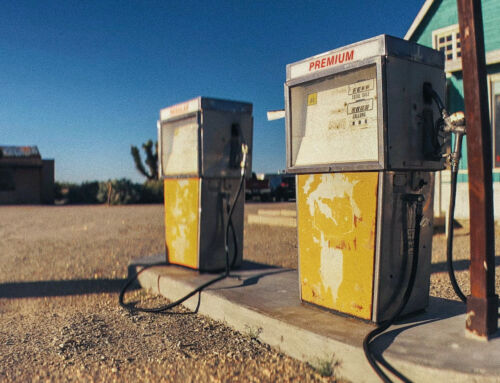View by Topic
Recent Articles
-
Congress Blocks California’s Gasoline Car BanSaturday, May 31st, 2025
-
EPA Will Keep Current Limits for “Forever Chemicals” in Drinking WaterSaturday, May 24th, 2025
-
Court Indefinitely Pauses SEC Climate Rule LitigationSaturday, May 17th, 2025
-
Maryland is About to Regulate Mold But is the Cart Before the HorseSaturday, May 10th, 2025
View by Month/Year
“Green Building Law Update” Headlines
Recent Articles & News from
Stuart Kaplow’s blog
at GreenBuildingLawUpdate.com
- EPA Will Keep Current Limits for “Forever Chemicals” in Drinking Water May 25, 2025
- Court Indefinitely Pauses SEC Climate Rule Litigation May 18, 2025
- Maryland is About to Regulate Mold: But is the Cart Before the Horse? May 11, 2025
- BEPS Redux: The Most Far Reaching Environmental Legislation of the 2025 Maryland General Assembly May 4, 2025
Subscribe to the Green Building Law Update!
Stuart Kaplow brings his expertise and extensive experience to the table with his unique digital publication, "Green Building Law Update". Subscribers receive regular updates to keep them informed about important issues surrounding Environmental Law, Green Building & Real Estate Law, as well as the emerging demand for Environmental Social Governance (ESG).
Get fresh content through the lense of Stuart Kaplow's cutting-edge expertise, innovative commentary and insider perspective. Don't miss another issue! Subscribe below.

Federal Court Reinstates Greenwashing Case Over Aspirational Statements
A recent ruling from a federal appellate court is bringing new attention to claims of greenwashing including specifically that a business’s aspiration statements about environmental matters (e.g., “we will be net zero greenhouse gas emissions by 2040” or “we will use at least 50% recycled material in our packaging by 2030”) can be actionable.
The Case: Greenwashing Allegations Against Coca-Cola
Earth Island Institute alleges in its greenwashing complaint filed in the District of Columbia brought under the DC Consumer Protection Procedures Act that Coca-Cola generates more plastic waste than any other company in the world, to the tune of 2.9 million metric tons of plastic waste per year.
Despite that in recent years, Coca-Cola has made efforts to increase the recyclability of its products to use more recycled materials in its products, and to champion those efforts in apparent attempts to assuage consumers’ environmental concerns, Earth Island contends that these recycling efforts are the proverbial lipstick on a pig, that recycling is a woefully ineffectual mechanism for mitigating plastic pollution on the scale that Coca-Cola produces it. The appellate court wrote, “there is nothing that Coca-Cola could do, short of vastly cutting back or eliminating its plastic production, that could render it anything that even approaches an environmentally sustainable company, or so Earth Island alleges.”
The Court’s Decision: Aspirational Statements Can Be Actionable
The DC appeals court on August 28, 2024, issued a decision finding that Earth Island sufficiently pleaded that Coca-Cola’s environmental and sustainability claims are in violation of the DC Consumer Protection Procedures Act, which protects consumers against false, deceptive, or unfair business practices (.. among the strongest such laws in the country; no doubt why the case was brought in DC).
The Court explained that the offending statements appear on Coca-Cola’s website, in a 2019 “business and sustainability report,” or in Coca-Cola’s Twitter (now “X”) feed. Coca-Cola touts goals it has set for itself:
- “Use at least 50% recycled material in our packaging by 2030.” (website, retrieved June 2021)
- “Make 100% of our packaging recyclable globally by 2025.” (website, retrieved June 2021)
- “Part of our sustainability plan is to help collect and recycle a bottle or can for every one we sell globally by 2030.” (tweet, Feb. 2020)
Earth Island also charges several of Coca-Cola’s other statements that are more vague, are intentional misrepresentations, including:
- “We act in ways to create a more sustainable and better shared future. To make a difference in people’s lives, communities and our planet by doing business the right way.” (website, retrieved June 2021)
Implications for Corporate Sustainability Messaging
Coca-Cola does not dispute that it “uses a great deal of packaging, some of which inevitably ends up in the natural environment” and that there is a substantial “amount of work it has left to do” to address its “environmental challenges.” However, in its view, it is taking steps to meet those challenges so that its representations to the same effect are not misleading. The complaint does not allege that Coca-Cola made untruthful statements. The Court reasoned, “where the parties disagree is whether those statements give consumers a false impression of Coca-Cola’s current and anticipated environmental impact on the ground.”
This Appellate Court concluded “Earth Island has stated a facially plausible misrepresentation claim,” and none of the lower court’s bases for dismissal of the complaint fatally undermines it when “.. even aspirational statements can be actionable under the CPPA.”
And this cause of action is not unique. We blogged earlier this year, New York is Coming for Your Cheeseburger with Greenwashing Case, when New York Attorney General Letitia James filed a lawsuit against JBS USA Food Company, the American subsidiary of the world’s largest producer of beef, alleging greenwashing in the company’s statements in a print ad and on its website “that it will achieve net zero greenhouse gas emissions by 2040, ..” were an attempt to assuage consumers’ environmental concerns.
This reasoning should be of concern to all businesses releasing statutorily required information under environmental laws, like BEPS greenhouse gas reporting that can be wielded as a greenwashing charge against a company by stakeholders and environmental activists alike.
Based on Coca-Cola’s aspirational statements, the Court reversed the earlier dismissal of Earth Island’s complaint and remanded the case for further proceedings.
Conclusion
As the Coca-Cola case moves forward, it will be watched closely by environmental advocates, businesses large and small, as well as those concerned about free speech. This court’s decision highlights the evolving legal landscape surrounding greenwashing including that truth in public facing statements may not be an absolute defense. It is concerning to many that the largest beverage company and largest producer of beef in the world are facing greenwashing claims, misapplying consumer protection laws to allege people are misled by truthful statements of the companies’ aspirations about environmental matters. Misusing consumer protection laws in the name of consumers who buy a cheeseburger and a Coke, to advance environmental aims will not repair our planet.
Businesses should take note of this ruling and examine their environmental messaging to avoid potential greenwashing reputational risk as well as to mitigate risk from judicial action.
_______________________
Please join us for our next webinar “Greenwashing: You Need to Mitigate Your Risk” on Thursday, October 24 from 9 – 9:30 am ET presented by Stuart Kaplow. The webinar is complimentary, but you must register here.









